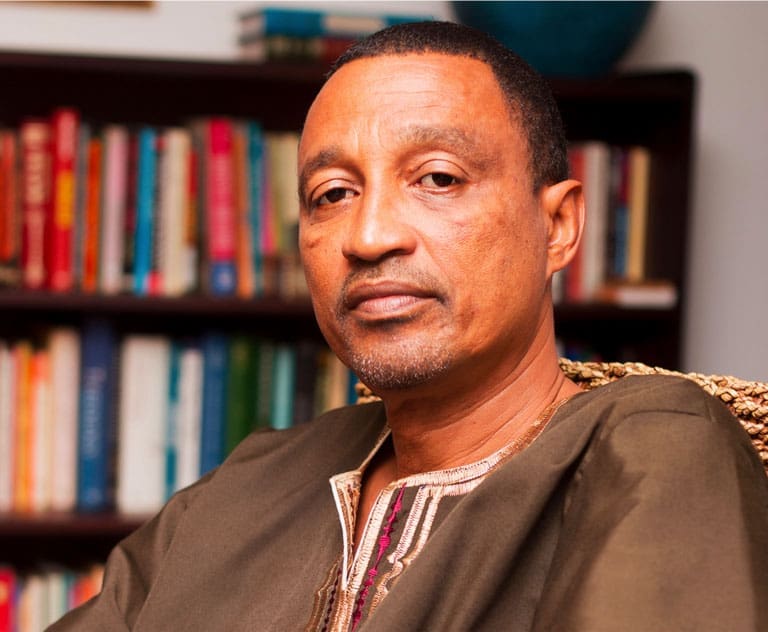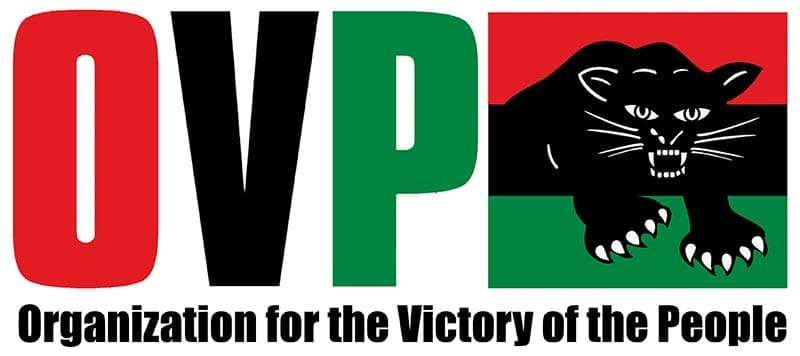
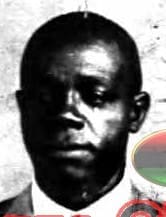
"By calling the theorem of the Square on the Hypotenuse, the Pythagorean theorem, it has concealed the truth for centuries from the world, who ought to know that the Egyptians taught Pythagoras and the Greeks, what mathematics they knew.”
George G. M. James, Stolen Legacy
The George James Institute is the educational arm of OVP. The Institute was named after the historian and author, George Granville Monah James, born on November 9, 1893, in Georgetown, Guyana, George James is best known for his classic work, Stolen Legacy (1954). In this seminal work, James clearly demonstrated that the ancient Greeks were not the authors of Greek philosophy, and that what passes as Greek philosophy, and the foundation of all West European philosophy, is in fact based entirely on Kemetic (Ancient Egyptian) ideas and concepts.
At the time of its publication, Stolen Legacy was viewed as heretical, since it was one of the first scholarly works to expose this outrageous deception, debunking Western racist historiography and epistemology, considered sacrosanct at the time. As expected, Professor James met with a great deal of hostility and scorn from established Western academic institutions.
Well-known American philosopher and author of In Defense of Plato (1953), Ronald B. Levinson, reviewing the book in 1955, wrote “only social psychologists and collectors of paradoxes will find here grist for their mills.” How wrong he was. Since 1954, many books have been written supporting James’ thesis. That the Greeks claimed Kemetic philosophy as their own, without any acknowledgement of the original authors, is now seen as an indisputable historical fact, amounting to exactly what James called it, a ‘stolen legacy’.
In a recent review of Stolen Legacy, Femi Akomolafe writes:
“No one should call himself educated who has not read Stolen Legacy. The next time anyone brandishes a PhD in your face, your question should be, ‘Have you read Stolen Legacy?”
Renowned scholar, Prof. Ben Jochannan, said this of George James seminal work: “If you ever dare to read the works of George G.M. James you will never again be the same as before you did. He stands at head of the line with Akhenaten, Ramesis, St. Augustine, Terrence, and so many others who heeded the warning, “Man know thyself.”
The George James Institute offers courses from an Afrocentric perspective, critiquing Eurocentric and racist historiography, epistemology, ideologies and systems. Classes are free and open to all those who want to understand the world in which they live.
Our Courses
Achieving True Independence and Self-Determination: Foundation Studies for National Liberation
COURSE OVERVIEW
In this course we cover a range of topics designed to equip our students ideologically and politically. The course introduces participants to the following areas of study:
- Uncovering our universal and hidden history
- Principles of Afrocentricity
- Political Economy and Black Power Economics
- Neo-colonialism and the struggle for true independence
- Economic Hitmen and the mechanisms that are used to ensure the continuous plundering of the resources and wealth of Guyana and the entire Global South.
- Political Ideologies: Neo-Liberalism, Capitalism, Marxism, Leninism, Jamahiriyan/Green Book/Natural Socialism.
- Democracy, Authoritarianism, Totalitarianism and Fascism
- Religion, Revolution and Liberation Theology
- Caribbean Political Thought
- Theories of Liberation and Decolonization including Marcus Garvey, Frantz Fanon, Amilcar Cabral, Kwame Nkrumah, Maulana Karenga and Muammar Qaddafi.
Course Duration: 10 months – one three hour evening class per week
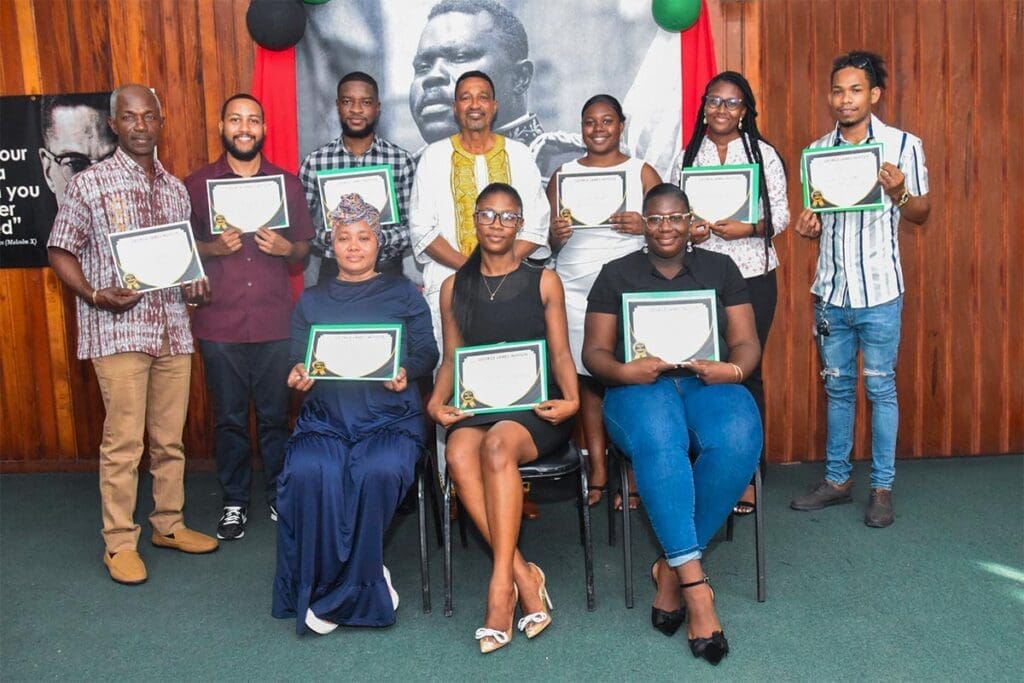
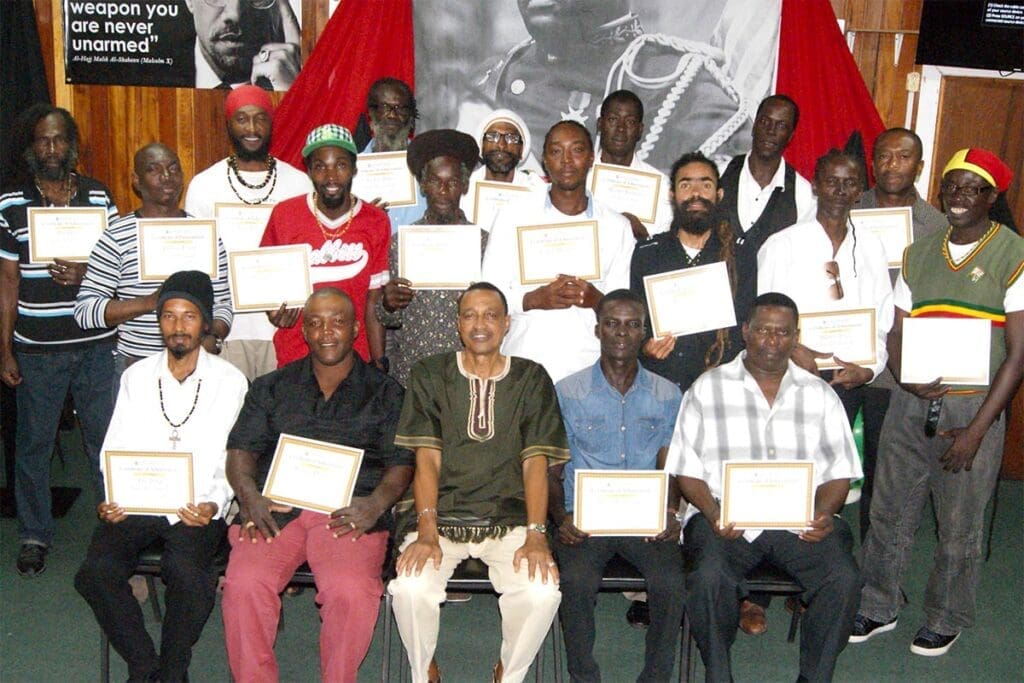
It is important to note that this course is relevant to and welcomes all Guyanese, of every ethnicity. References to Black Power and Black Studies are used here to include all Non-White peoples. Black Power is about Black People/Non-White People being in a position to free ourselves from our current state of economic, political, spiritual and intellectual incarceration, so that we can shape our own destiny from a position of strength. Black Power is not simply a matter of putting Black faces in high places. For example, Black visibility in a neo-colonial arrangement is not Black Power. We have surely had enough of that to know that it is meaningless.
What is meant by Black? Obviously it refers to people of African descent, but also to people of Indian and Indigenous descent. However, it does not stop there. Someone could be the darkest Black in complexion and completely lack Black Consciousness. It is not about skin colour alone. That is why Kwame Ture could have called Fidel Castro the Blackest man in the Caribbean. It's why Muammar Qaddafi can be said to have led a Black Consciousness movement. It's why both Castro and Qaddafi will go down in history as leading figures in the Movement for African Unity and Liberation. Black Power is a mindset; a paradigm. Black Power is an attitude.
NEW!
Our Reading List
We have endeavored to present a comprehensive reading list that provides an in-depth understanding of the world we live in, arming us for the struggle to transform that world for the better. In other words, education for total liberation. We hope it is not overwhelming and advise you to research each title to know if it is what you are looking for.
Leadership Course for Community Activists
COURSE OVERVIEW
The most successful organizations throughout the world be they political, business or religious, have long realized that leaders must be grown, cultivated and nourished. We all possess skills, qualities and characteristics that are identified with leadership, however, most of us do not get the opportunity to embark on the kind of self-development journey that will enable us to galvanize these attributes into action. Anyone who has the desire and willpower can be become an effective leader. Good leaders develop through a never ending process of study, education, training and experience.
Leadership development cannot be seen as a single training course or as a finite learning experience. Instead, it is a continuous sequence of closely related and systematically organized learning and experience building opportunities. Leadership development is a lifelong journey of education and self-discovery. This course can assist you with the foundational knowledge and skills that you will need to embark on that life-long journey. Participants will focus on:
- Gaining an understanding of the complexities of leadership
- Discussing and evaluating various leadership theories
- Identifying effective leadership practices
- Assessment and enhancement of skills for effective leadership
- Identifying the personal qualities and characteristics of a leader
Course Duration: 3 Months – One Three Hour Evening Class Per Week
Entry Criteria For All Courses
- 16 Years And Over
- No Fees And All Materials Provided Free Of Charge
- Cannot Join Course Midway
- Must Register And Be Present At First Class.
Graduation
Students Will Graduate With A Certificate Issued By The George James Institute For Thought & Action.

Graduate Milcah Lynch-Joseph addresses fellow graduates.
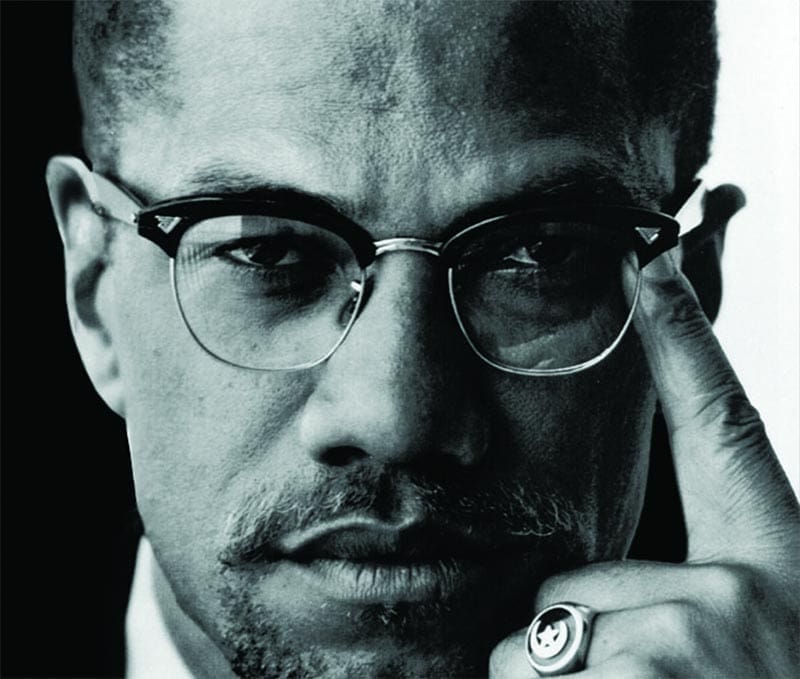
"When Your Mind Is A Weapon You Are Never Unarmed"
Al-Hajj Malik al-Shabazz
Malcolm X
“If you don’t know your full-throttle history, the whole story of how you came to where you are, it’s kind of hard to put things together.”
Nipsey Hussle

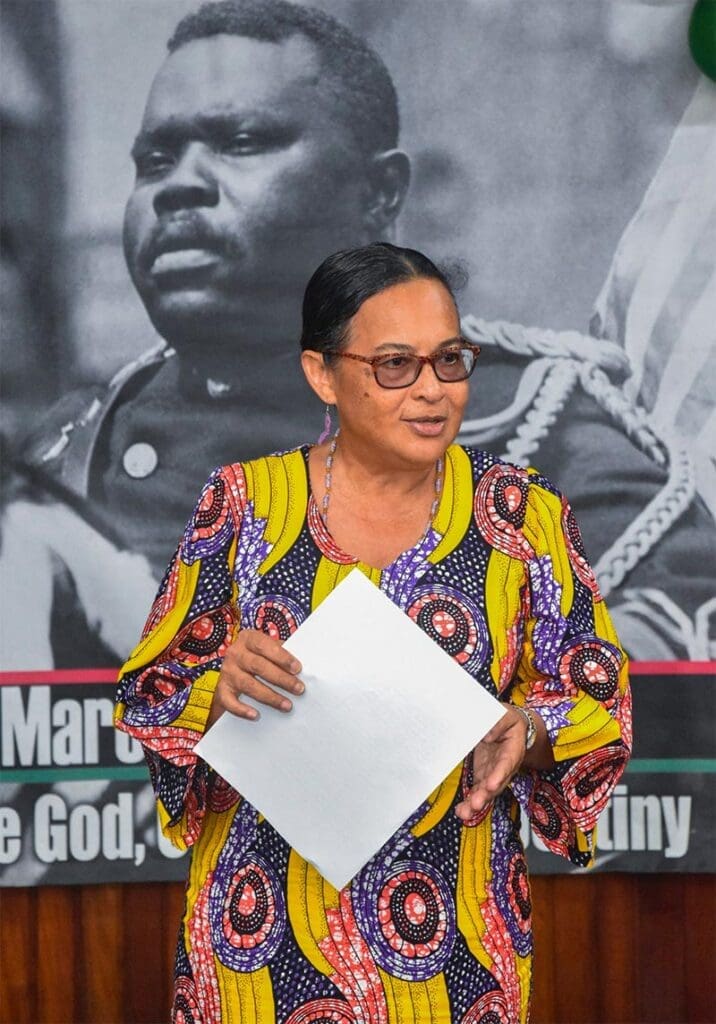
Lecturer and coordinator of the Guyanese Languages Unit at University of Guyana, Charlene Wilkinson addresses graduates.
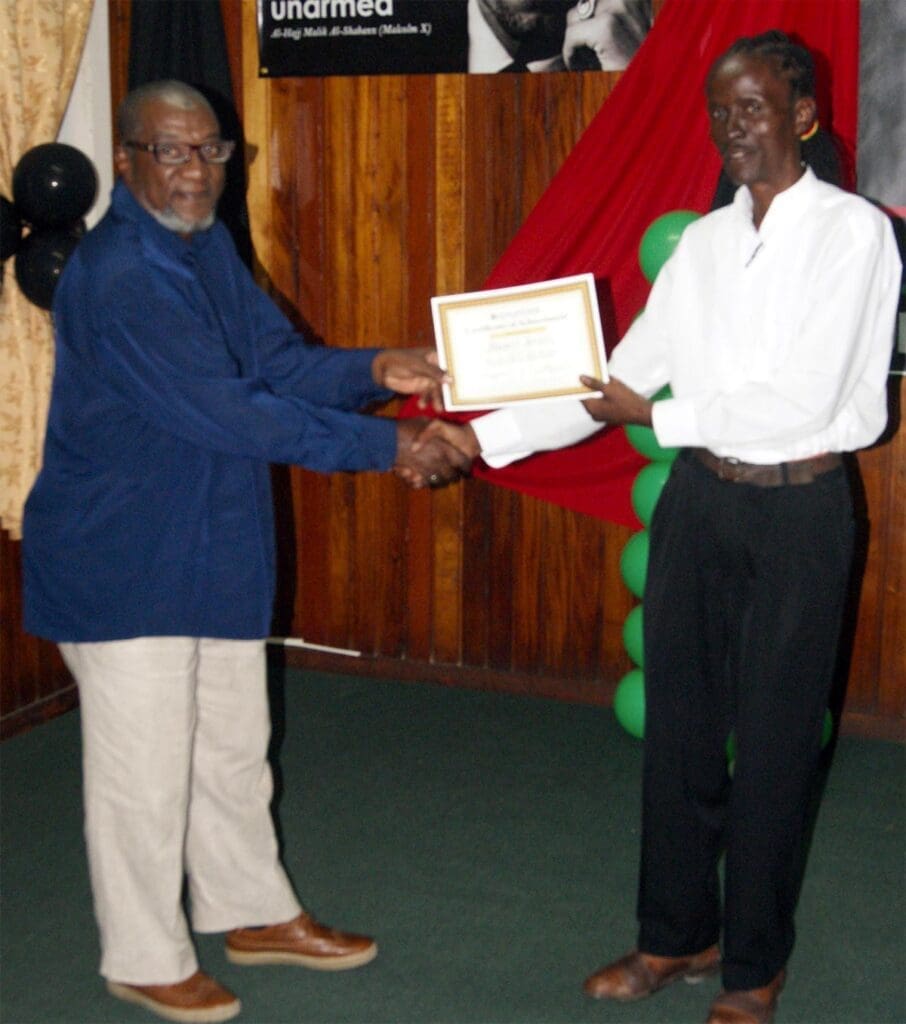
OVP National Directorate member, Akram Sabree, presents a certificate to fellow National Directorate member and respected militant, the late Rupert Jervis (aka Juni). Rest in Power Brother.
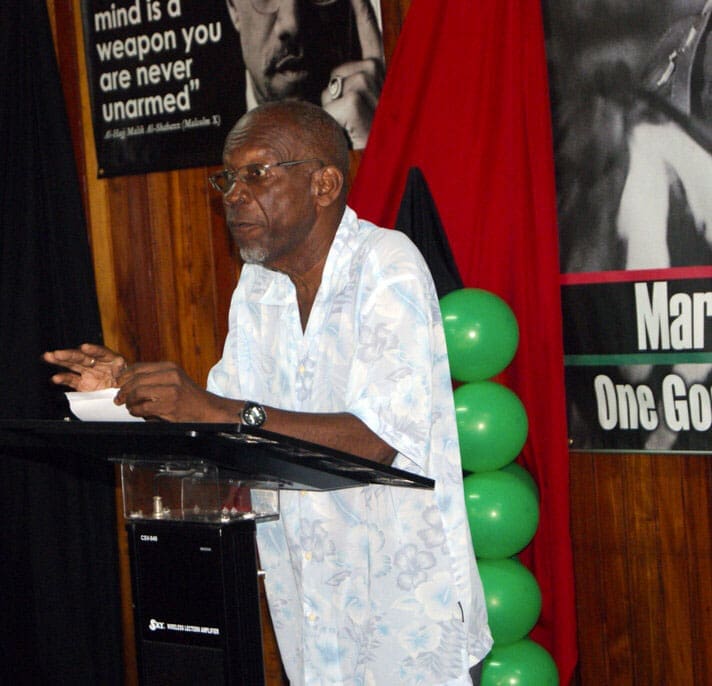
Former Chairman of the Young Socialist Movement (YSM) and Minister of Education under Forbes Burnham, Jeffrey Thomas, addresses graduates.
Book Donations
WE NEED YOUR HELP
The Institute has set up a library and is looking for donations of books – please contact us if you are able to donate books – for those who live abroad – please consider purchasing even one book and sending – contact us for a list of books needed.
“Education is the practice of freedom, the means by which men and women deal critically and creatively with reality and discover how to participate in the transformation of their world.”
Paulo Freire
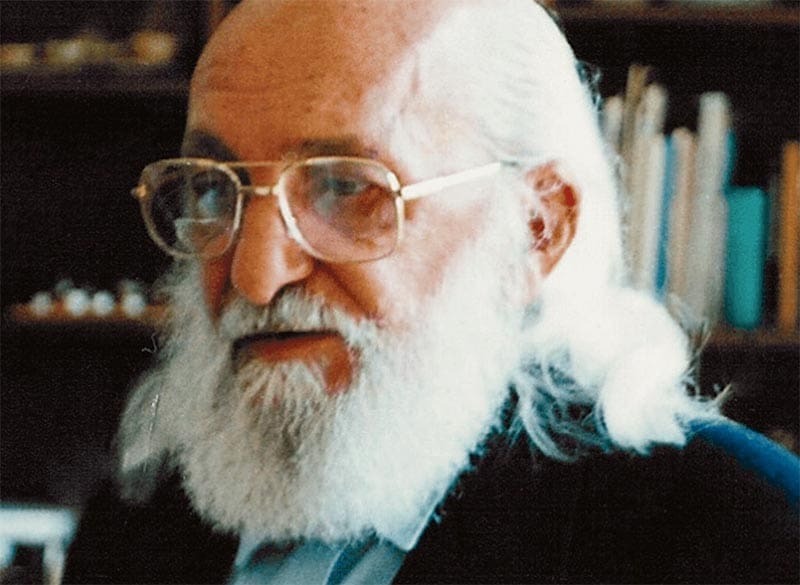
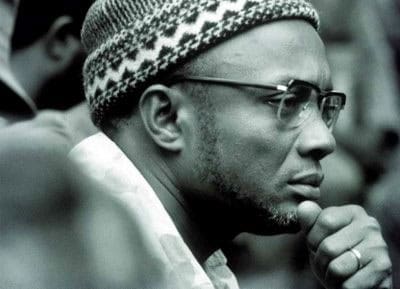
“Every practice produces a theory, and though it is true that a revolution can fail even though it be based on perfectly conceived theories, nobody has yet made a successful revolution without a revolutionary theory."
Amilcar Cabral
"The relationship between thought and action must be clearly understood, an understanding which is essential for advancing the national revolution. Thought is to action what the foundation of a building is to the building itself; a building without a foundation will collapse - indeed, there can be no building without a foundation. Equally, there can be no effective/meaningful action if thought is lacking. Thought is primary and provides the basis for action. Thought without action is meaningless, action without thought is destructive."
Gerald A. Perreira
